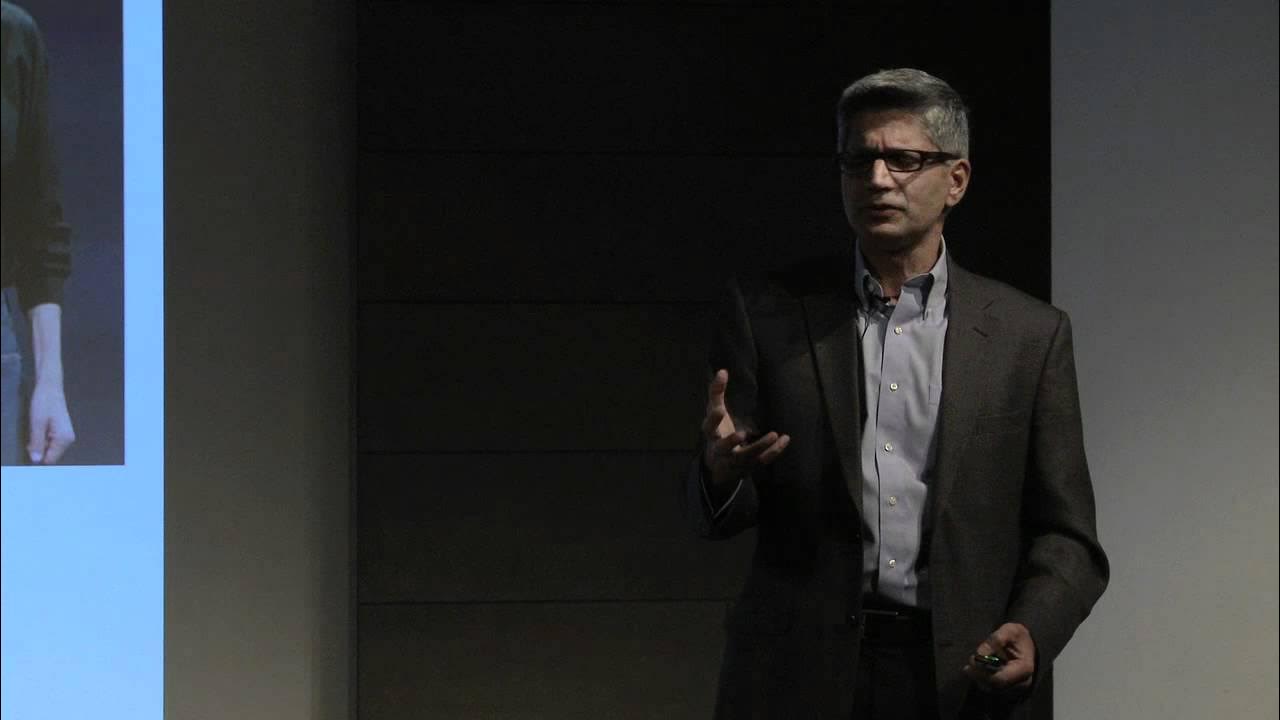Why do we sleep? | Russell Foster
Summary
TLDRThis talk delves into the neuroscience of sleep, emphasizing its importance in our lives. Despite spending nearly a third of our lives asleep, society often undervalues its restorative and cognitive benefits. The speaker debunks myths about sleep, highlighting its role in memory consolidation and creativity. They also address the serious consequences of sleep deprivation, including its links to obesity, stress, and mental health issues. The talk concludes with insights into how sleep disruption is physically connected to mental illnesses, offering new therapeutic targets for treatment.
Takeaways
- 😴 The average person spends 36% of their life asleep, emphasizing the significance of sleep in our lives.
- 🕰 Historically, sleep has been valued and even romanticized, but modern perspectives, like Edison's, have sometimes viewed it as a waste of time.
- 🧠 Sleep is not a passive state; the brain remains active, with some areas more active during sleep than when awake.
- 🔄 Sleep involves complex interactions across various brain regions, including the hypothalamus and brain stem.
- 🧬 Recent scientific findings support the idea that sleep is crucial for restoration and metabolic processes, with specific genes activated during sleep.
- 💡 Sleep plays a critical role in memory consolidation and creative problem-solving, enhancing learning and cognitive flexibility.
- ⏰ Society is currently facing a sleep deprivation crisis, with reduced sleep times linked to poor health and cognitive outcomes.
- 🚫 Sleep deprivation is linked to an increased risk of obesity, stress, and various health issues, including a higher risk of infections and diabetes.
- 🛌 Simple lifestyle changes, such as reducing light exposure before bed and seeking morning light, can improve sleep quality.
- 🧪 Emerging research reveals a strong link between sleep disruption and mental health, suggesting that sleep stability could be a therapeutic target for mental illnesses.
Q & A
What is the significance of sleep in our lives according to the speaker?
-The speaker emphasizes that sleep is the single most important behavioral experience, accounting for 36% of an average person's life, and is crucial for our health and cognitive functions.
How has the perception of sleep changed over time as mentioned in the script?
-The perception of sleep has shifted from being seen as a necessary and restorative state in the past, to being viewed as a waste of time or an enemy in modern times, especially with the advent of electric lighting and the 24-hour society.
What role does the brain play in the process of sleep?
-The brain does not shut down during sleep; some areas are more active during sleep than when awake. Sleep arises from a complex network of interactions within the brain, including the hypothalamus and the brain stem.
What are the three main hypotheses the speaker discusses regarding why we sleep?
-The three hypotheses are: 1) Restoration, where the body repairs and rebuilds itself during sleep. 2) Energy conservation, though the speaker is skeptical due to the minimal energy saved. 3) Brain processing and memory consolidation, which is supported by the impaired learning abilities of sleep-deprived individuals.
What are the consequences of sleep deprivation as outlined in the script?
-Sleep deprivation can lead to poor memory, creativity, increased impulsiveness, and poor judgment. It's also linked to weight gain, stress, suppressed immunity, higher rates of infection, and increased risk of cardiovascular disease and diabetes.
How does the speaker suggest we can improve our sleep quality?
-The speaker advises making the bedroom dark and cool, reducing light exposure before bed, avoiding stimulants like caffeine late in the day, and seeking out morning light to regulate the biological clock.
What myths about sleep does the speaker debunk?
-The speaker debunks myths such as teenagers being lazy, the idea that everyone needs exactly eight hours of sleep, the notion that older people need less sleep, and the belief that early risers are healthier or wealthier.
How is sleep disruption linked to mental health according to the speaker?
-The speaker discusses that sleep disruption is not just associated with mental illness but is physically linked within the brain. Disruption in the neural networks that regulate sleep can also lead to mental health problems.
What new insights does the speaker provide about the treatment of mental illness through understanding sleep?
-The speaker suggests that stabilizing sleep could be a new therapeutic target for treating mental illnesses, potentially alleviating symptoms and improving health outcomes.
What is the speaker's final recommendation regarding sleep?
-The speaker concludes by urging the audience to take sleep seriously, emphasizing its importance for overall health and well-being, and suggesting that good sleep practices can lead to improved cognitive function and mental health.
Outlines

هذا القسم متوفر فقط للمشتركين. يرجى الترقية للوصول إلى هذه الميزة.
قم بالترقية الآنMindmap

هذا القسم متوفر فقط للمشتركين. يرجى الترقية للوصول إلى هذه الميزة.
قم بالترقية الآنKeywords

هذا القسم متوفر فقط للمشتركين. يرجى الترقية للوصول إلى هذه الميزة.
قم بالترقية الآنHighlights

هذا القسم متوفر فقط للمشتركين. يرجى الترقية للوصول إلى هذه الميزة.
قم بالترقية الآنTranscripts

هذا القسم متوفر فقط للمشتركين. يرجى الترقية للوصول إلى هذه الميزة.
قم بالترقية الآنتصفح المزيد من مقاطع الفيديو ذات الصلة
5.0 / 5 (0 votes)






